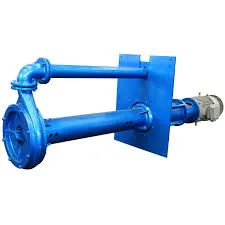English
- Afrikaans
- Albanian
- Amharic
- Arabic
- Armenian
- Azerbaijani
- Basque
- Belarusian
- Bengali
- Bosnian
- Bulgarian
- Catalan
- Cebuano
- Corsican
- Croatian
- Czech
- Danish
- Dutch
- English
- Esperanto
- Estonian
- Finnish
- French
- Frisian
- Galician
- Georgian
- German
- Greek
- Gujarati
- Haitian Creole
- hausa
- hawaiian
- Hebrew
- Hindi
- Miao
- Hungarian
- Icelandic
- igbo
- Indonesian
- irish
- Italian
- Japanese
- Javanese
- Kannada
- kazakh
- Khmer
- Rwandese
- Korean
- Kurdish
- Kyrgyz
- Lao
- Latin
- Latvian
- Lithuanian
- Luxembourgish
- Macedonian
- Malgashi
- Malay
- Malayalam
- Maltese
- Maori
- Marathi
- Mongolian
- Myanmar
- Nepali
- Norwegian
- Norwegian
- Occitan
- Pashto
- Persian
- Polish
- Portuguese
- Punjabi
- Romanian
- Russian
- Samoan
- Scottish Gaelic
- Serbian
- Sesotho
- Shona
- Sindhi
- Sinhala
- Slovak
- Slovenian
- Somali
- Spanish
- Sundanese
- Swahili
- Swedish
- Tagalog
- Tajik
- Tamil
- Tatar
- Telugu
- Thai
- Turkish
- Turkmen
- Ukrainian
- Urdu
- Uighur
- Uzbek
- Vietnamese
- Welsh
- Bantu
- Yiddish
- Yoruba
- Zulu
Telephone: +86 13120555503
Email: frank@cypump.com
Oct . 06, 2024 14:56 Back to list
waste ejector pump system
Understanding Waste Ejector Pump Systems
Waste ejector pump systems play a crucial role in various industrial and municipal applications, ensuring the effective removal of waste materials from different environments
. These systems are designed to transport wastewater, sewage, and other forms of liquid waste from lower to higher elevations when gravity drainage is not feasible. This article explores the components, functioning, and advantages of waste ejector pump systems.At the heart of an ejector pump system is the ejector pump itself, which is specifically engineered to handle waste materials. Unlike traditional pumps that may not handle solids well, ejector pumps are equipped with robust impellers and robust construction to manage sludges, solids, and other contaminants without clogging. These pumps often feature a dual-stage system, where the first stage grinds solid waste into smaller particles, facilitating easier transport.
The functioning of a waste ejector pump typically involves a combination of mechanical and hydraulic principles. The pump is submerged in the liquid waste and activated when the waste level reaches a predetermined point. Once operational, the pump creates a vacuum that draws both liquids and solids into the pumping chamber. The grinding mechanism then reduces the size of solid particles, allowing them to be efficiently pumped through discharge pipes to a higher elevation or directly to a treatment facility.
waste ejector pump system

One of the key advantages of using waste ejector pump systems is their ability to overcome gravity challenges. Many industrial and commercial sites, especially those located in low-lying areas, face difficulties in waste disposal due to the lack of gravity drainage options. Ejector pumps help in moving waste effectively from pits or basements to either the municipal sewer systems or onsite treatment facilities, thereby preventing potential health hazards and environmental pollution.
Additionally, waste ejector pumps are known for their reliability and durability. They are typically constructed from corrosion-resistant materials to withstand the harsh conditions often present in wastewater environments. Regular maintenance can further enhance their lifespan and efficiency, ensuring that waste is consistently managed without interruption.
Moreover, advancements in technology have led to the development of smart ejector pump systems that can be monitored remotely. These systems can provide real-time data on pump performance, alert operators to issues, and optimize energy consumption, making them more efficient and user-friendly.
In conclusion, waste ejector pump systems are indispensable in modern waste management, particularly in areas where traditional gravity drainage is not achievable. Their robust design, efficient operation, and reliability make them a preferred choice for industries and municipalities alike, ensuring the effective disposal and treatment of waste materials. As we evolve towards more sustainable practices, these systems will continue to play a vital role in safeguarding public health and the environment.
-
ISG Series Pipeline Pump - Chi Yuan Pumps | High Efficiency, Durable Design
NewsAug.01,2025
-
Advanced Flue Gas Desulfurization Pump with GPT-4 Turbo | Durable & Efficient
NewsJul.31,2025
-
ISG Series Vertical Pipeline Pump - Chi Yuan Pumps | Advanced Hydraulic Design&Durable Construction
NewsJul.31,2025
-
ISG Series Vertical Pipeline Pump - Chi Yuan Pumps | Energy Efficient & Low Noise
NewsJul.31,2025
-
pipeline pump - Chi Yuan Pumps Co., LTD.|High Efficiency&Low Noise
NewsJul.31,2025
-
ISG Series Vertical Pipeline Pump - Chi Yuan Pumps Co., LTD.|High Efficiency, Energy Saving, Low Noise
NewsJul.30,2025










